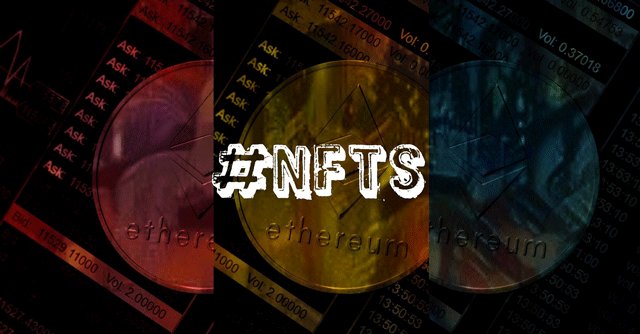
Will NFTs be banned if cryptocurrencies are banned?


Non-fungible tokens or ‘NFTs’ have been around for a while – the first being minted in 2014. However, India has only lately began to experience a surge in popularity of NFTs. Despite the mainstreaming of NFTs, the regulatory landscape around them continues to remain ambiguous.
What are NFTs?
NFTs, like cryptocurrencies, are based on blockchain technology. However, unlike cryptocurrencies, NFTs are unique and cannot be interchanged (i.e. they are non-fungible). To break it down with an example – one could exchange a bitcoin for another bitcoin and would end up with a bitcoin that is the same. This is similar to exchanging a ten rupee note for another ten rupees note – both notes represent ten rupees. However, NFTs cannot be duplicated, meaning that one cannot exchange an NFT for another NFT that is identical to the other, akin to exchanging an apple for an orange.

NFTs’ unique selling point is the fact that they represent unique ownership, as the owner of an NFT is recorded on the distributed ledger that the NFT is minted on. This prevents anyone else from claiming that they own the NFT, as the ledger would prove otherwise. NFTs have the potential to revolutionize all forms of ownership and are not just restricted to art and music but can be anything digital. Similar to the goal of bitcoin, to eliminate financial institutions as middle-men in transactions, NFTs could eliminate the need for escrows, property registrars, share depositories etc., as peer-to peer authentication makes a central authenticator redundant.
While NFTs and cryptocurrencies are distinct from each other, NFTs generally rely on cryptocurrency. This is because the minting and exchange of NFTs requires validation by the blockchain – which entails a transaction fee usually compensated using cryptocurrency. For example, on the Ethereum blockchain, the transaction fee, termed ‘gas fee’, is compensated to miners in ether (ETH) – the cryptocurrency of Ethereum. The inextricable link between NFTs and cryptocurrency brings us to the next question.
Are cryptocurrencies legal?

Currently, cryptocurrencies are not illegal in India. The Reserve Bank of India (“RBI”) had initially prohibited entities regulated by the RBI, such as banks, non-banking financial companies and payment systems (“REs"), from dealing in cryptocurrencies or providing services which facilitate dealings in cryptocurrencies. The Supreme Court later set aside the prohibition in Internet and Mobile Association of India v. Reserve Bank of India (Writ Petition (Civil) No.373 of 2018), for being disproportionate to the objectives of the RBI, but did not restrict legislators from passing future legislation to prohibit or regulate cryptocurrencies.
In 2017, a high-level Inter-ministerial Committee (“IMC”) was constituted to study issues relating to cryptocurrencies and to recommend regulatory action. In 2019, the IMC proposed the ‘Banning of Cryptocurrency & Regulation of Official Digital Currency Bill, 2019’ (“Banning of Crypto Bill”). As you can guess, the Banning of Crypto Bill proposed to ban all cryptocurrencies in India not regulated by the RBI or another country’s central bank.
While the Banning of Crypto Bill has not been enacted as law, the Lok Sabha Bulletin contains a reference to ‘The Cryptocurrency and Regulation of Official Digital Currency Bill, 2021 (“2021 Crypto Bill”). The purpose of the 2021 Crypto Bill is to:

“To create a facilitative framework for creation of the official digital currency to be issued by the Reserve Bank of India. The Bill also seeks to prohibit all private cryptocurrencies in India; however, it allows for certain exceptions to promote the underlying technology of cryptocurrency and its uses.”
Therefore, while the 2021 Crypto Bill has dropped the word ‘Banning’ from its title, this change appears to be mere form over substance. The principal intent of the 2021 Crypto Bill appears very similar to that of the Banning of Crypto Bill, i.e., to prohibit decentralized cryptocurrencies.
The future of cryptocurrency is unclear, but what about NFTs?

Interestingly, some have tried to find ways to get around the need for cryptocurrency in NFT transactions. China, for one, has a thriving NFT market despite banning cryptocurrency – with players such as Tencent, Alibaba and even McDonalds participating in the space. This has been made possible through semi-regulated blockchains distinct from mainstream decentralized blockchains such as Ethereum. As a result, even the tokens used for gas fees are limited to such blockchains and cannot be used for much else, thereby losing their utility as cryptocurrencies. A downside to this is a limited market – as such NFTs are limited to these blockchains and cannot be traded on mainstream blockchains such as Ethereum.
Using the Chinese example, NFTs may not be a guaranteed casualty of a cryptocurrency ban. However, this would still affect NFTs as we know them to be, as they would no longer be decentralized and operate in a limited market.
So are NFTs illegal?

Cryptocurrencies and NFTs operate in a grey area under Indian law. This is because cryptocurrencies enable domestic and cross-border transactions without funds and information flowing through regulated channels. Further, since Indian laws on KYC and anti-money laundering (“AML”) only apply to certain regulated entities and financial intermediaries, cryptocurrencies have the potential to allow people to circumvent these KYC and AML requirements. While several cryptocurrencies and NFT intermediaries (including crypto and NFT exchanges) are voluntarily complying with the abovementioned KYC norms (through a self-regulatory model), Indian law does not presently have a mechanism to enforce these requirements vis-à-vis such entities or cryptocurrencies.
Foreign exchange controls and compliance are another major area of concern in the context of cryptocurrencies. While Indian exchange controls have been considerably liberalized over the last few decades, the Foreign Exchange Management Act, 1999 (“FEMA”) continues to impose certain restrictions on the ability of Indians and foreigners to carry out foreign exchange transactions in India. For instance, FEMA places limits on the amount of foreign exchange that can be purchased by an Indian resident every year; or brought into India during a visit. FEMA also imposes certain restrictions on the purposes for which funds may be remitted out of India and requires financial intermediaries to ensure compliance with these restrictions. Similarly, FEMA imposes several restrictions on the circumstances in which an Indian entity may receive funds from a foreign source.
At present, FEMA relies on financial intermediaries to monitor foreign exchange transactions and ensure compliance with the abovementioned regulations and restrictions. As in the case of KYC and AML compliance, cryptocurrencies have the potential to allow individuals/entities to circumvent these regulations and restrictions. The RBI does not, at present, have a mechanism to enforce these regulations, in the context of cryptocurrencies, or an effective solution to monitor such decentralized transactions.

FEMA also governs and regulates the manner in which Indian residents make or receive payments against import or export transactions and requires such payments to be facilitated by Indian banks reported to the RBI. In the absence of any specific exemption or regulatory guidance, the sale or purchase of an NFT by Indian person from a person outside India would constitute an “export” or “import” (as applicable), and such transactions would, ordinarily, be governed by the FEMA.
What about copyright law?
If the NFT represents art, music, videos etc., the underlying content of such NFT would be governed by the Indian Copyright Act, 1957, but not the NFT itself. It may be noted that an NFT, by itself, does not transfer any copyright to the holder of the NFT, and the rights associated with an NFT would depend entirely on the nature of the underlying contract relating to the NFT. For example, a copyright owner that mints an NFT may assign holders of an NFT the copyright to the underlying work. On the other hand, an NFT may not grant the holder any rights associated with a copyright, which would continue to be held by the creator of the underlying content of the NFT. There may also be cases where NFTs are minted without the authorization of the copyright owner and may be subject to infringement proceedings. For example, recently, Quentin Tarantino’s plans to sell NFTs based on the film Pulp Fiction have been objected to by Miramax, the studio which owns the copyright to the film. There have also been many reports of artists reporting their work being stolen and sold as NFTs.
To conclude, the regulatory framework of NFTs is non-existent and it is unclear what the future holds. There have been recent reports to suggest that the legislators may be taking a more nuanced approach to cryptocurrency and may designate the Securities Exchange Board of India as the central regulator. Until the government comes out with regulations and clarifications NFTs will continue to operate in the grey. Cryptocurrency and NFTs have tremendous potential to revolutionize transactions and ownership, but their future is hinged on carefully considered policies by the government. Only time will tell.

Nikhil George
Nikhil George is an associate at law firm J. Sagar Associates.
